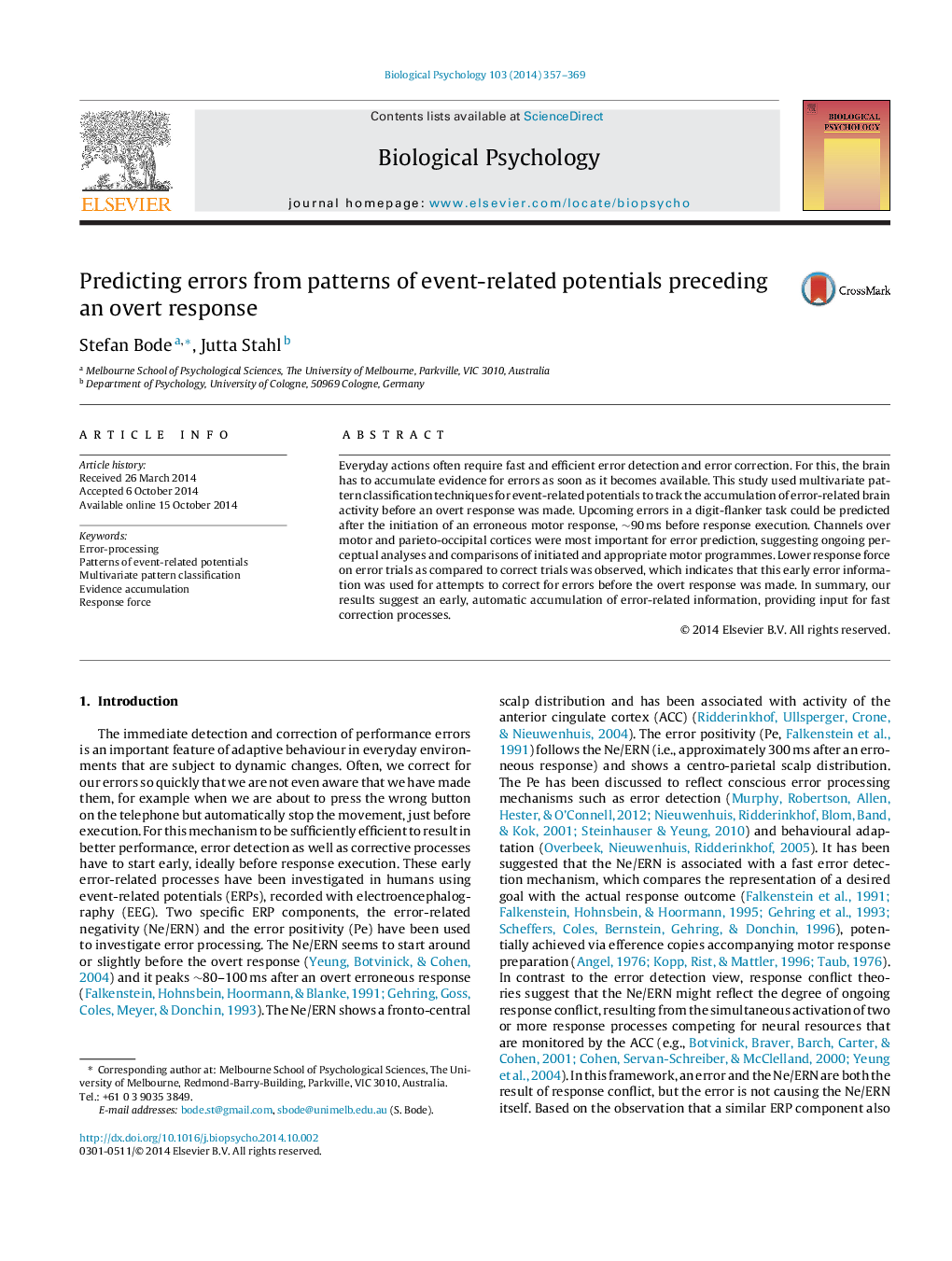| Article ID | Journal | Published Year | Pages | File Type |
|---|---|---|---|---|
| 7278817 | Biological Psychology | 2014 | 13 Pages |
Abstract
Everyday actions often require fast and efficient error detection and error correction. For this, the brain has to accumulate evidence for errors as soon as it becomes available. This study used multivariate pattern classification techniques for event-related potentials to track the accumulation of error-related brain activity before an overt response was made. Upcoming errors in a digit-flanker task could be predicted after the initiation of an erroneous motor response, â¼90Â ms before response execution. Channels over motor and parieto-occipital cortices were most important for error prediction, suggesting ongoing perceptual analyses and comparisons of initiated and appropriate motor programmes. Lower response force on error trials as compared to correct trials was observed, which indicates that this early error information was used for attempts to correct for errors before the overt response was made. In summary, our results suggest an early, automatic accumulation of error-related information, providing input for fast correction processes.
Related Topics
Life Sciences
Neuroscience
Behavioral Neuroscience
Authors
Stefan Bode, Jutta Stahl,
